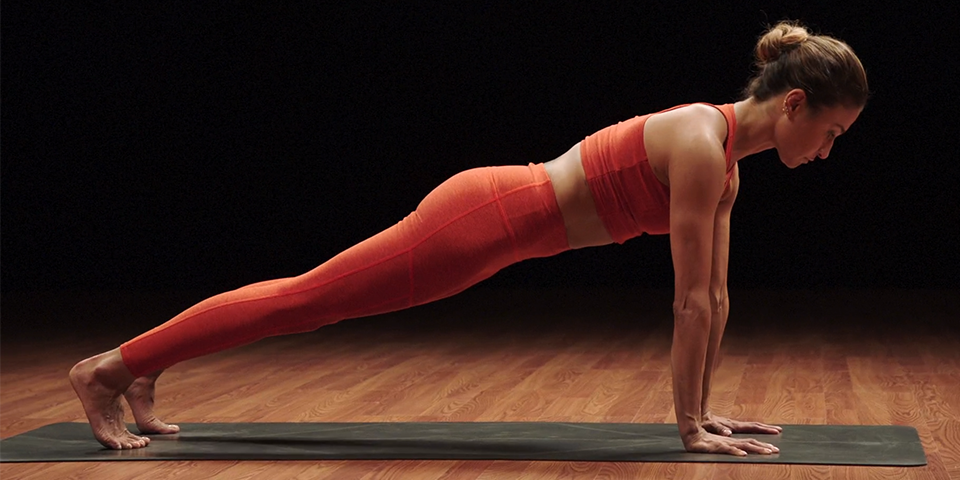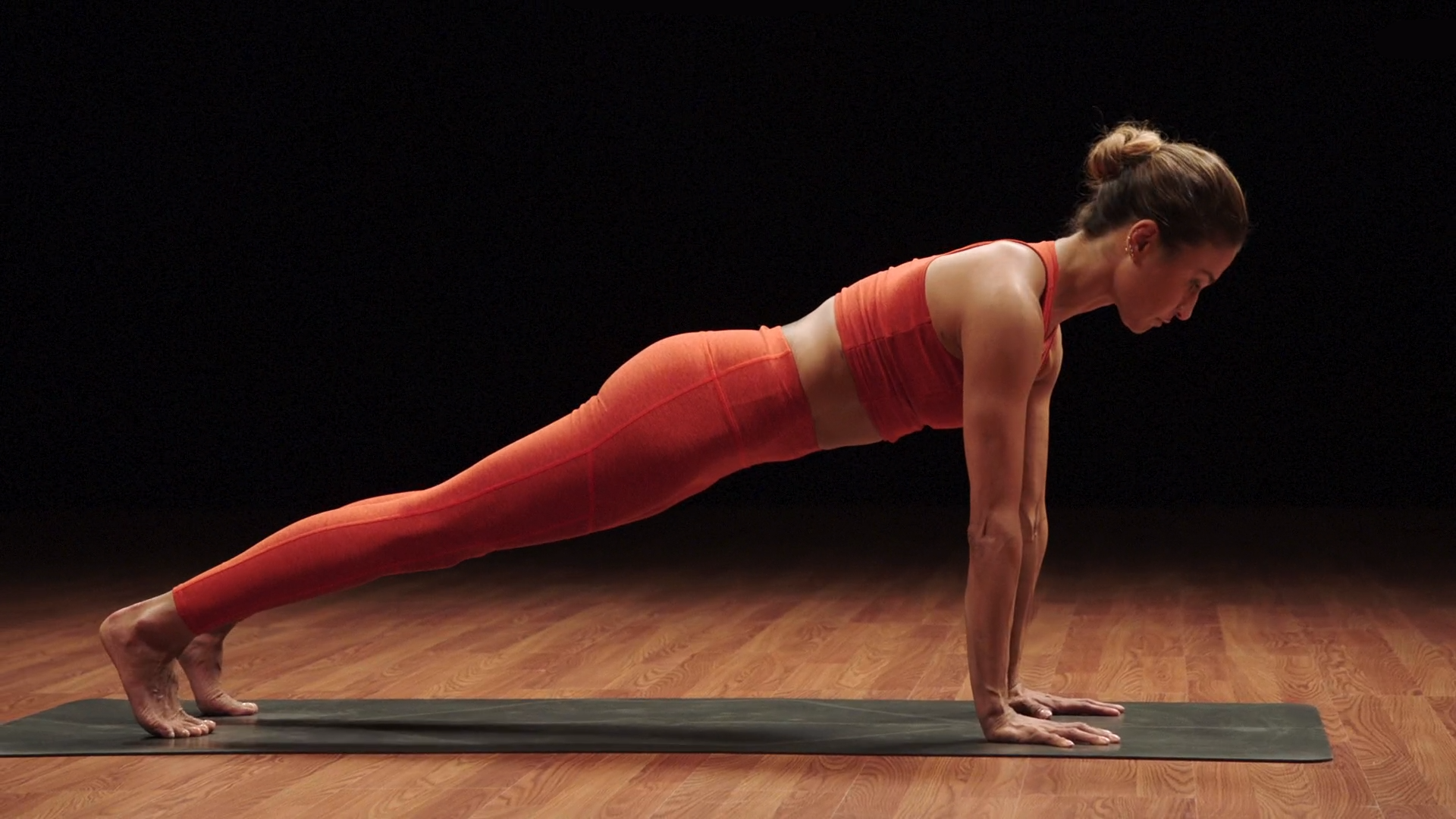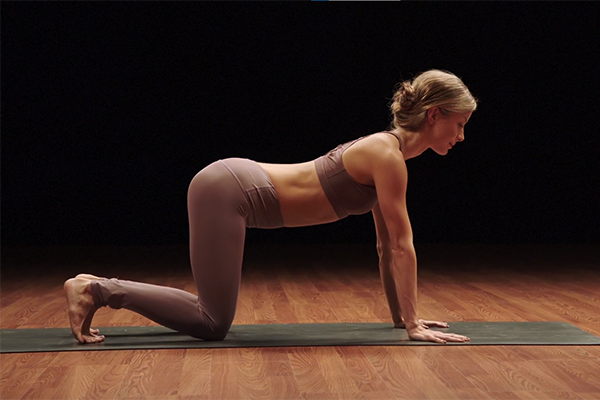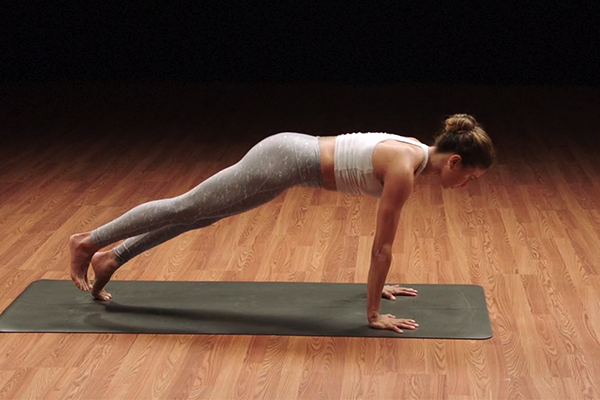A common myth about yoga is that it only improves flexibility, but the yoga plank pose is primarily about building strength in the core.
The yoga plank pose, or phalakasana, is a foundational yoga pose that strengthens the entire body. It’s part of the sun salutation sequence in Ashtanga and Vinyasa yoga.
As its name suggests, the yoga plank pose brings sturdiness to the body like a wood plank offers structure to a building.
A strong core serves as a foundation for your entire yoga practice; when your core is strong you can move into the poses that focus on flexibility with more stability and safety.
Yoga Plank Pose: Step-by-Step Instructions
Here’s a full breakdown on the yoga plank:
Set-up
- Start in a table-top position on hands and knees.
- Line up your wrists directly under the shoulders with your fingers pointing forward or slightly outward. Keep your knees hip-width and engage your abdomen.
- Open up your chest, retracting your shoulders away from your ears, and gaze toward the front edge of the mat.
Getting into the pose
- Exhale as you extend your right leg backwards, lifting your knee off the ground and curling your toes so that you’re on the balls of your feet.
- Repeat these steps with your left leg. Your feet should be hip distance apart.
Alignment
- Engage the muscles of the legs. Think about spinning your inner thighs toward the ceiling.
- Lengthen your tailbone toward your heels. Engage the abdominal muscles.
- Keep your hips level. Roll your shoulders down and back to keep your chest open as you press back through your heels.
- Keep shoulder blades down away from the ears. Firm your triceps and biceps and press into the mat with your palms. Root down into your hands and toes to maintain the natural curve of the spine and keep the hips from sinking or rounding.
- Place your attention on creating a straight line between the shoulders, hips, and feet.
- Gaze toward the front of the mat and take five deep breaths.
Yoga Plank Pose Benefits
While the yoga plank isn’t quite as flashy as other poses, it still provides lots of functional benefits.
Builds strength
Plank pose builds strength in your core, arms, and shoulders while your legs work to stabilize your body. This pose helps practitioners build focus and power.
Sets the foundation for harder poses
It’s the basis for arm balances. If you practice a solid plank pose, then you can move to more difficult poses with greater ease.
Improves posture
Since you must focus on proper alignment in the pelvis, upper back, shoulders, and neck, plank pose may also help improve your posture.
How to Make the Yoga Plank Pose Easier
If it’s too challenging to hold this pose in place, drop your knees down to the mat and lower your hips to create a straight line between your shoulders, hips, and knees. Practice engaging your core and firming your arms.
How to Make the Yoga Plank Pose Harder
As your core becomes stronger, you will be able to hold this pose longer, so rather than holding the pose for 5 deep breaths, make it seven or 10.
This is a great way to track your strength building. Another fun challenge is to lift one foot off the ground a few inches and challenge your balance through the center of your body.
You can find plank pose in many BODi programs, such as Yoga52 and Beachbody Yoga Studio.



